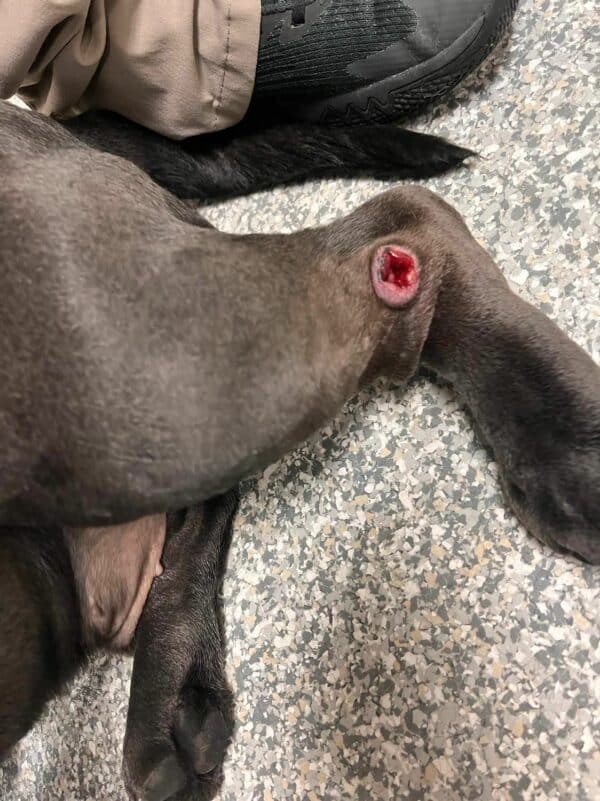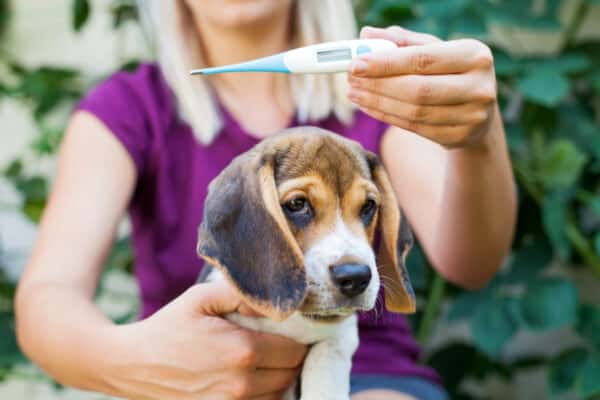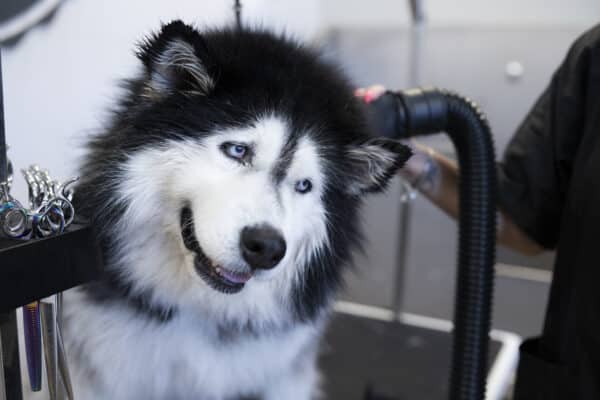Many dog parents have heard about kennel cough — but a lot of us wonder exactly what it is and if the term “kennel” truly has anything to do with it. To get some insight, we turned to an expert, Dr. Richard Ford, who is a Professor of Medicine at North Carolina State University College of Veterinary Medicine.
What exactly is kennel cough?
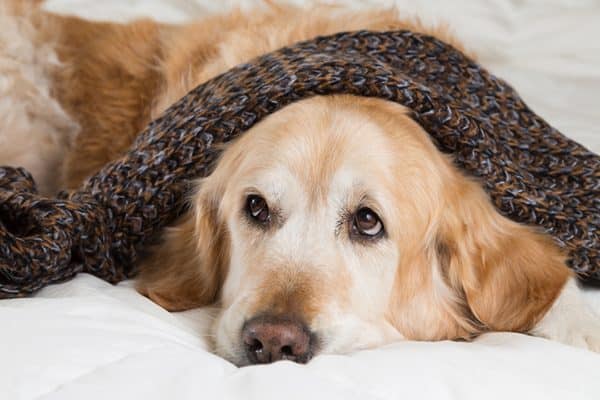
Dr. Ford explains that kennel cough is the annoying and sometimes dangerous contagious respiratory infection that characteristically develops shortly after a dog has had contact with other affected dogs — especially following time spent in a kenneled environment, boarding facility, animal shelter and training facility. Other places that tend to be breeding grounds for kennel cough include doggie daycares, dog parks and grooming facilities. Kennel cough is a relatively complex contagious respiratory syndrome. And because it implicates multiple organisms, the proper term for this clinical illness is actually canine infectious respiratory disease, or CIRD.
What are kennel cough symptoms?
Symptoms of CIRD most commonly include: coughing, sneezing, and nose and eye discharge. Untreated, Dr. Ford says that kennel cough may turn into pneumonia and — in rare instances — could even be fatal to dogs.
Most pet parents can manage kennel cough treatments at home with veterinary monitoring. However, Dr. Ford cautions that, “rarely, an infected dog will become so ill — usually with pneumonia — that hospitalization and intravenous treatment is required.”
How is kennel cough spread?
Like the dog flu, CIRD spreads very easily from dog to dog. Social dogs who engage with other dogs at, for example, dog parks, training centers and daycares, are most at risk of contracting kennel cough.
“Typically, the infectious organism, whether bacteria or virus, is transmitted from dog-to-dog following direct contact,” says Dr. Ford. “That’s why kennels are considered to be high-risk environments. Not uncommonly, an infected dog can carry and transmit the infectious bacteria or virus without showing clinical signs of respiratory disease.”
Dogs don’t even have to have direct contact with an infected dog to be at risk, either, Dr. Ford explains. “It is also possible for respiratory secretions from an infected dog to be left behind on a water bowl or food dish or a toy,” he says. “The next dog to take a drink, eat or play with a toy previously used by an infected dog is at considerable risk of becoming infected.”
Dr. Ford offers this important suggestion: “think about those ‘public’ water bowls displayed on sidewalks outside retail stores [as] something your dog should avoid!”
How to treat kennel cough
Dogs of any age can contract CIRD. Dr. Ford has found that, “puppies seem to suffer the most and may be at increased risk for lower respiratory infection (pneumonia).” Some healthy adult dogs are able to recover with at-home kennel cough treatments, but if your dog has a cough that lasts more than 2-3 days, Dr. Ford suggests heading to your vet for an examination and to determine the most appropriate treatment for your dog. “Do not use over-the-counter cough suppressants intended for use in humans,” cautions Dr. Ford.
“Because CIRD is caused by a virus or a bacteria, and sometimes viruses and bacteria in the same dog at the same time, treatment choices will vary,” Dr. Ford explains. There is not one treatment for kennel cough, but “antibiotics are typically prescribed in the event bacteria (which may be serious complicating factors) is present,” he says. “Since there are no drugs capable of eliminating viruses, the infected dog is managed symptomatically with prescription cough suppressants.”
It may seem surprising that your veterinarian likely won’t take diagnostics to determine exactly what’s causing the infection. “Results take too long and any treatment prescribed is typically empirical — based on managing the clinical signs,” says Dr. Ford.
Is there a kennel cough vaccine? How can you prevent kennel cough?
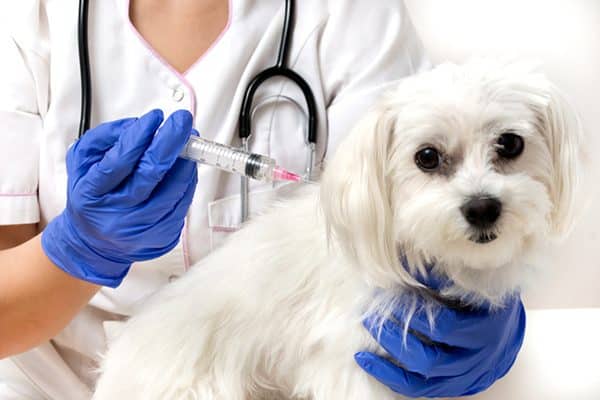
The only way to truly prevent kennel cough is to keep your dog inside and away from any other dogs at all times, which isn’t a very enriching life for your dog or very much fun for you! The next best way to protect your dog from CIRD is to vaccinate your dog.
I’d always thought Bordetella vaccines protected my dogs against kennel cough, but Dr. Ford explains that kennel cough is more complicated than that. “Vaccines are available for many, although not all, of the organisms that cause CIRD. Vaccines used to prevent infection caused by Bordetella bronchiseptica and parainfluenza virus are among the most important,” Dr. Ford advises.
Your veterinarian will advise on which vaccines and at what frequencies are best for your dog. Where I live in New York City, dogs must have Bordetella vaccines every six months, and it’s against the law for boarding kennels, training centers or groomers to have dogs on site without written proof of Bordetella (amongst other) vaccines from a veterinarian.
Read more about dog health on Dogster.com:



